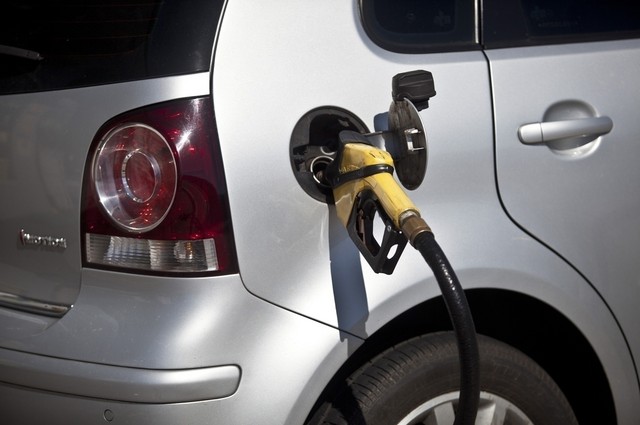- DPR Seals Five Petrol Stations in Rivers
The Department of Petroleum Resources has sealed off five petrol stations in Port Harcourt for selling Premium Motor Spirit, also known as petrol, at prices above the official price.
Apart from the five, the DPR monitoring team also sealed off some other petrol stations in the metropolis for obstructing the agency’s officials from performing their duty.
The Head, DPR Downstream Monitoring and Regulations, Port Harcourt Zone, Mr. Emmanuel Enwuchola, who led a team of officials on surveillance in Port Harcourt on Friday, explained that 32 filling stations were visited during the exercise.
Enwuchola stated that while two stations were sealed for under-delivery in the Town axis of Port Harcourt, two other stations on Ada George Road were sealed off for overpricing.
He added that one of the petrol stations was sealed off for obstructing DPR officials on Aba Road in the Rivers State capital.
The DPR head said marketers and petrol dealers, who prevented DPR officials from carrying out their duties, had something to hide and would be punished accordingly.
“Whenever any filling station employee or owner obstructs DPR officials, we suspect that the there is something they are trying to hide. Therefore, the department is committed to ending sharp practices by marketers with a view to ensuring stringent punishment to serve as a deterrent.
“Any filling station that decides to remove our seal or continues to sell under the seal will face a stiffer punishment,” he maintained.
Enwuchola, however, advised members of the public to always buy where the product was sold at the official price of N145 per litre.
“If you get to any filling station that is not selling at N145 per litre, move to where they are selling at the correct price; do not buy under panic,” he added.
He stressed that the agency would not rest on its laurels, but would continue to ensure that petroleum marketers under its purview complied with government’s guidelines.
“As I speak to you today, all those queues in Port Harcourt have disappeared and most of the stations are selling at N145 per litre. It is only a few stubborn ones that are still selling above the government approved price.
“It is our duty to ensure that marketers sell at the right price and deliver the right quantity to the public. We cannot allow any marketer to sell at any price they want. Therefore, they must buy at the appropriate price and also sell at the correct price and quantity,” Enwuchola added.
Meanwhile, some customers have commended the DPR for the operation, urging the agency to increase the frequency of its surveillance as many petrol stations were still selling above N145 per litre and most times under-dispense the product to them.
“The DPR should not relax; they are helping the masses. Many petrol stations are not doing well; they are selling at N200 or N220 per litre. Sometimes, when they sell 10 litres to us, what we receive is seven litres and it is annoying; DPR should come frequently to help us,” one of the customers at a filling station said.


 Naira4 weeks ago
Naira4 weeks ago
 Billionaire Watch4 weeks ago
Billionaire Watch4 weeks ago



 Naira4 weeks ago
Naira4 weeks ago






 Naira4 weeks ago
Naira4 weeks ago


 Naira3 weeks ago
Naira3 weeks ago






 Naira3 weeks ago
Naira3 weeks ago
 Economy4 weeks ago
Economy4 weeks ago


 Naira3 weeks ago
Naira3 weeks ago





















